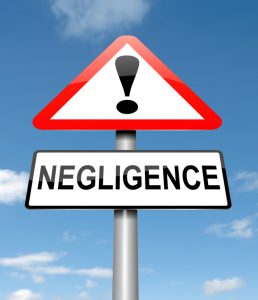When Trucking Companies Can Be Held Responsible for an Accident
June 12, 2018
Trucking Company Liability for Crashes
Motor carriers are required to abide by various laws, rules and regulations in order to minimize the risk that their commercial trucks and drivers will be involved in accidents. All too often, however, these trucking companies fail to live up to their obligations, cutting corners and/or violating the law in an effort to boost profits. This commonly comes at the expense of – and detriment to – public safety on the roads.
Revealing more about trucking company liability for crashes, the following uncovers some common ways in which:
- Trucking company negligence can contribute to wrecks.
- These companies can be liable for truck accidents involving its trucks and/or drivers.
If you or a loved one has been hurt in a truck accident, don’t hesitate to contact an experienced lawyer at the Amaro Law Firm to find out more about your legal options for financial recovery. We are ready to help you pursue all available legal remedies and set your claim(s) up for successful outcomes.
Have You Been Hurt in a Truck Wreck?
Are You a Trucker Who Was Hurt in a Job-Related Crash?
Call (713) 352-7975, Text (281) 612-8024 or Email Our Firm
for Your FREE Case Evaluation
During a FREE, no obligations consultation, we will review your situation and explain your legal options. Free virtual and mobile consultations are available to anyone who cannot visit our offices.
Motor Carrier Negligence, Truck Accidents & Liability
Some of the more common forms of trucking company negligence that can cause crashes – and for which motor carriers can be liable – include:
- Failures to hire qualified truckers – Trucking companies must follow specific procedures, set by federal law, when screening applicants for open truck driver positions.1 This includes (and is not limited to) verifying that an applicant holds a valid commercial driver’s license (CDL), reviewing the applicant’s driving record, examining the applicant’s medical exam certificate and conducting inquiries with the applicant’s previous employers.These procedures are intended to assure that truckers have the necessary credentials and that they do not have a history of reckless driving or any medical condition that could prevent them from safely operating a truck. Motor carriers that skip steps in the hiring process – or overlook issues that should disqualify an applicant – can be liable for crashes caused by underqualified, reckless or medically unfit truckers.
- Failures to train truckers – Depending on the motor carrier and the cargo being transported, it may be necessary for trucking companies to provide specialized training on how to load, monitor and/or unload cargo. For example, additional training is usually necessary for transporting flammable or hazardous materials. Not providing the necessary training is another way in which trucking companies can be negligent, contribute to crashes and end up being liable for the resulting wrecks.
- Failures to maintain trucks – Motor carriers are also responsible for inspecting their commercial fleet, making the necessary repairs and responding to any safety recalls impacting their trucks. Proper truck maintenance is integral to assuring that trucks and all of their safety equipment operate as they should. Consequently, when trucking companies forego truck inspections, fail to make the appropriate repairs or disregard safety recalls, they can be liable for the accidents arising from these failures.
- Unrealistic delivery schedules and/or incentives that promote risky driving – These forms of trucking company negligence can compel or incentivize truckers to violate federal hours-of-service (HOS) rules, which limit the number of hours truckers can drive during a given shift and week.2 The result can be that truckers push themselves to meet impossible schedules or make early deliveries for bonuses. Ultimately, this can lead to fatigue-impaired truckers causing accidents for which trucking companies can be liable.
- Failures to comply with any trucking regulations – Along with HOS rules, there are a number of other trucking regulations that motor carriers are legally required to abide by. These impact anything from drug testing truckers to properly securing cargo. Whenever motor carriers’ violations of trucking regulations play a role in causing trucking wrecks, again, the carriers can be liable for compensating crash victims for their injuries, suffering and losses.
Please be aware that a motor carrier may be just one of the liable parties for a single truck accident. The Amaro Law Firm can help you determine all liable parties, hold them accountable and set your truck accident claim up for the any available recovery that you may be entitled to.
While we know compensation may never erase the damage caused by serious truck wrecks, we also know that these can be the key to restoring lives.
Get Essential Answers & Advocacy: Contact a Truck Accident Attorney at the Amaro Law Firm
If you or a loved one has been harmed in any type of truck collision, you can turn to an experienced truck accident attorney at the Amaro Law Firm for effective advocacy in the pursuit of justice and compensation. We represent motorists, commercial truck drivers and others in various types of trucking wreck claims.
Call (713) 352-7975, text (281) 612-8024 or email our firm for your FREE, no obligations consultation.
The Amaro Law Firm’s record of quality representation and success in truck accident cases has earned us exceptional testimonials from former clients and 5-star ratings on Google and Facebook.
________________________________________________________________________________
1: Guidelines & procedures for hiring new truckers from the Federal Motor Carrier Safety Administration (FMCSA)
2: More on the FMCSA’s HOS Rules
